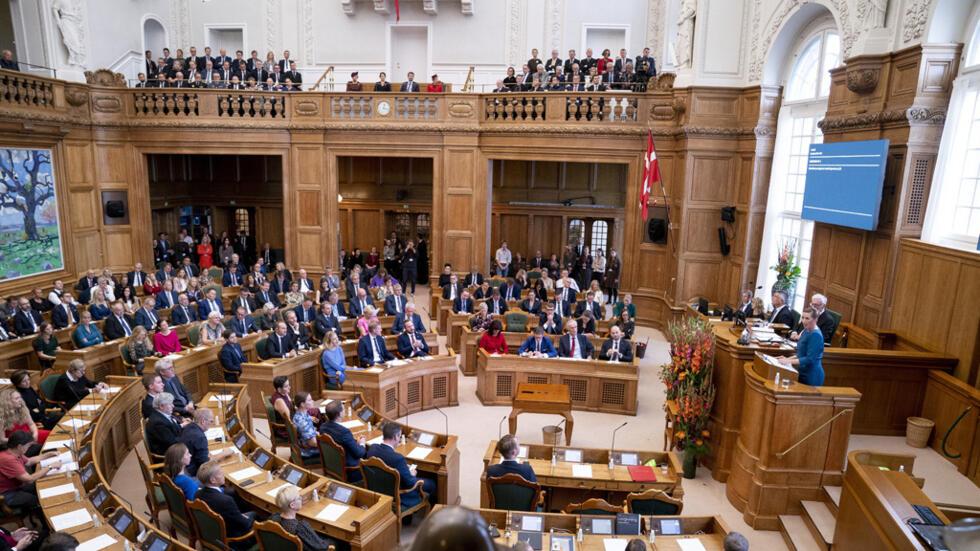
After several incidents over the summer, the Danish Parliament passed a law prohibiting “inappropriate treatment” of religious texts and practically banning the burning of the Quran, amid government assurances of commitment to ensuring freedom of opinion and expression.
The bill prohibiting “inappropriate treatment of texts of significant religious importance to recognized religious communities” was passed by a majority of 94 votes in favor and 77 votes against in the 179-seat parliament.
Violators of the law, which will be reviewed after three years, will be punished by a fine or imprisonment for up to two years, but it will not include “verbal or written expressions” offensive to religions, including cartoons.
In turn, Justice Minister Peter Hammelgaard said in a statement, on Thursday, December 7, “His country still adheres strongly to the laws of freedom of expression, but we must protect the security of Denmark and the Danes. Therefore, it is important that we have better protection from the systematic insults that we have witnessed since long time”.
On July 20, supporters of the leader of the Sadrist movement in Iraq, Muqtada al-Sadr, stormed the Swedish embassy in Baghdad and set it on fire, in response to the organization of two gatherings in Stockholm during which the Quran was desecrated by an Iraqi refugee.
Between July 21 and October 24 this year, 483 burnings of symbols or flags were recorded in Denmark, according to police figures.
The draft law was unveiled at the end of August, then it was amended after criticism that its first draft limited freedom of expression and would be difficult to implement. It was originally planned to include symbols of great religious importance.
In July, the UN Human Rights Council adopted a resolution condemning “any advocacy and display of religious hatred, including recent activities, overt and deliberate, that have led to the desacralization of the Quran,” and calling on states to adopt laws that would allow them to hold those responsible for such acts accountable.
The resolution was approved by 28 countries in the Council out of 47, including China, Ukraine, and most African countries, while seven countries abstained from voting and twelve countries voted against it, including France, Germany, the United Kingdom, and the United States.
It is noteworthy that during the summer, Denmark and neighboring Sweden sparked anger in many Islamic countries following demonstrations that included burning and desecrating the Quran.
The legal provision will also apply to the desecration of the Bible, the Torah, or religious symbols such as the cross, with the offender being punished with a fine and two years in prison.
Denmark, as well as Sweden, had tightened border procedures in early August for fear of a deterioration in the security situation following successive incidents of burning and desecrating the Quran. Then Denmark canceled it on August 22.





